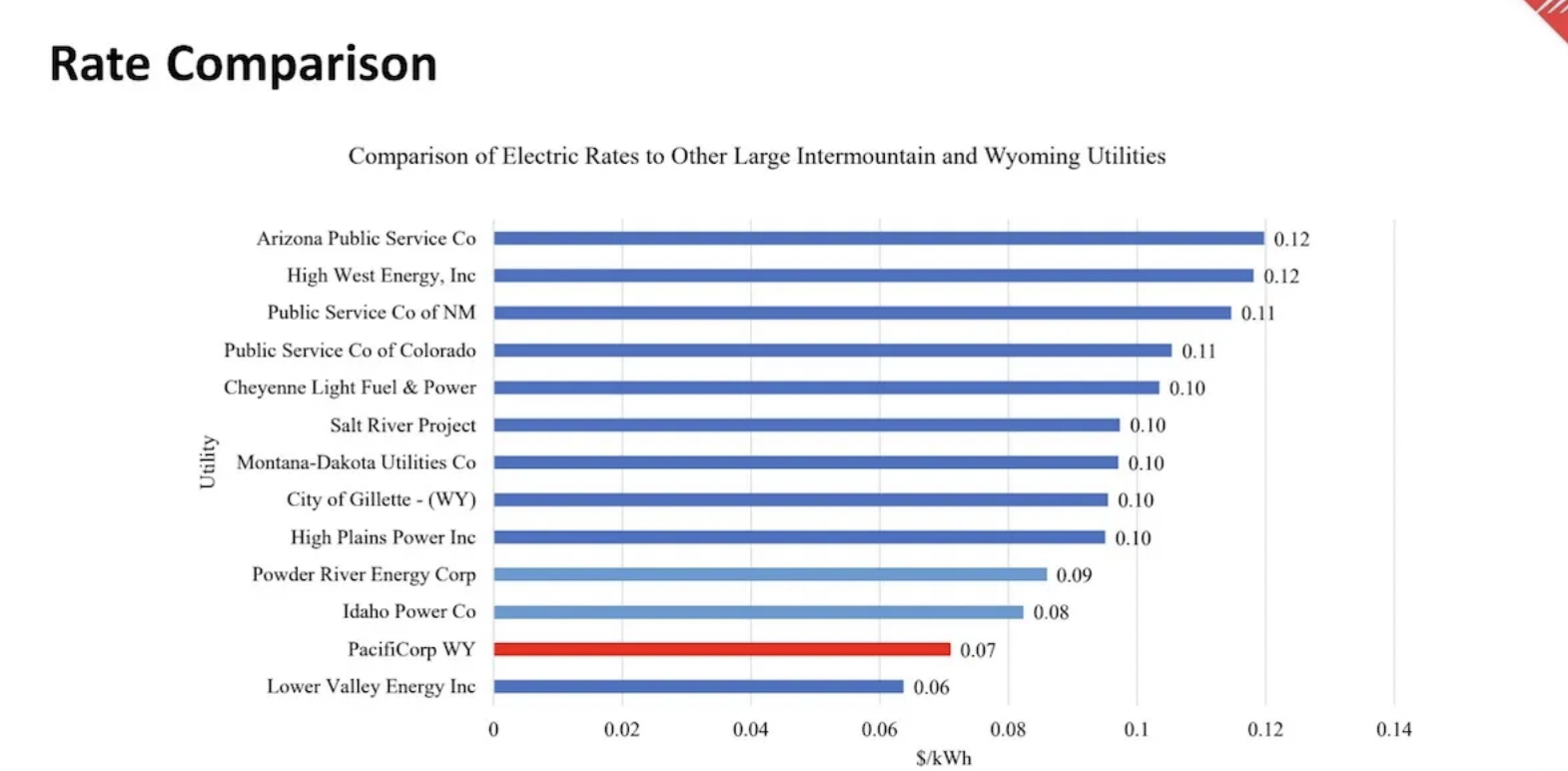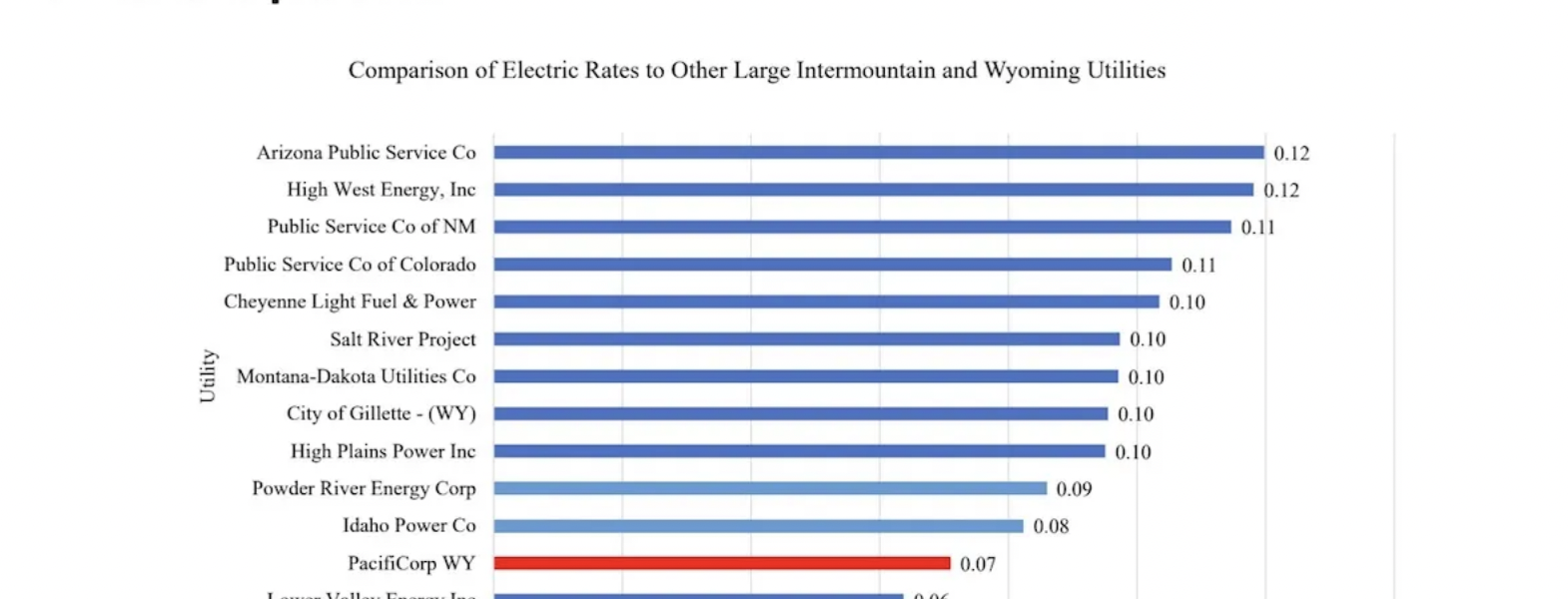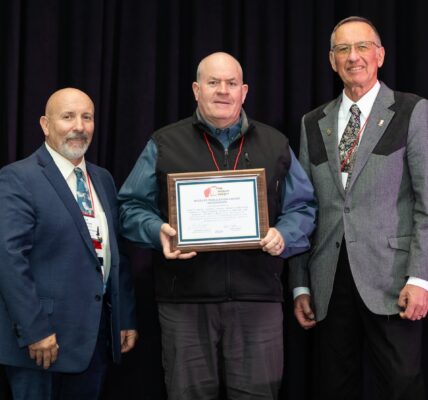Lawmakers back off effort to curb impending Wyoming electricity hike

• Even some challenging Rocky Mountain Power’s proposed 29.2% rate hike said the Legislature’s approach would place ratepayers at greater risk.
By Dustin Bleizeffer, WyoFile.com
Lawmakers agreed Wednesday to change course on a raft of legislation that was hastily thrown together in recent weeks in hopes of heading off Rocky Mountain Power’s proposed 29.2% electricity rate increase.
After hearing pleas to proceed with caution, a legislative committee agreed to set aside some of the draft bills, including a moratorium on new wind and solar in electricity rates. The panel also decided to consider some new measures, including one that would apply a more formal, legal review of a utility’s long-range planning document known as an “Integrated Resource Plan.”
Critics complained the legislative effort, led by the Joint Corporations, Elections and Political Subdivisions Committee, attempted to duplicate much of the technical and legal analysis that the Wyoming Public Service Commission already does when setting utility rates. Other measures, including a proposed moratorium on industrial-scale wind and solar energy, would simply make matters much worse for Wyoming ratepayers already looking at rising costs, those critics said.
“I would say I trust the Public Service Commission,” Black Hills Energy Government Affairs Manager David Bush told the committee Wednesday at the Capitol. “I would hope that you all would too and let them do their work.”
Others echoed that message, including one of Rocky Mountain Power’s own biggest critics. The Wyoming Industrial Energy Consumers is a group of trona miners and oil and natural gas refiners, and they represent the largest block of Rocky Mountain Power customers in the state.
“We have very real concerns that [the draft bills] will actually have the unintended result of actually raising rates,” Holland and Hart Attorney Abby Briggerman, who represents WIEC, told the committee.
Though many WIEC members are in the business of producing and marketing fossil fuels, as electrical customers — some of whom pay more than $1 million in power bills — they see the value in affordable electricity. That’s why the group opposes a moratorium on wind and solar energy.
“In many instances, including the current rate case, renewable sources of energy have placed downward pressure on Rocky Mountain Power’s overall costs,” Briggerman said. “So by eliminating this potential source of generation for a period of time, the legislation would have the consequence of increasing power costs.”
Rocky Mountain Power’s proposed rate case is a significant concern among members of the Wyoming Mining Association. In some instances, companies are looking at the possibility of having to pause projects or cancel them altogether, according to the association’s Jody Levin.
“I would encourage you to move forward with your overall review,” Levin told lawmakers. “Much of what we’ve heard today, of course, will not impact this rate case. But there will be future rate cases. And if future rate cases are proposing anywhere near what we’re seeing with this rate case, you will likely see industries no longer be able to operate in Wyoming.”
Influencing rate case?
Corporations Committee Co-chairman Sen. Cale Case (R-Lander) said House and Senate leadership asked the committee to move up its work on utility legislation ahead of Rocky Mountain Power’s scheduled rate case hearing before the Public Service Commission on Oct. 25.
The committee’s agenda included a resolution “in opposition to Rocky Mountain Power’s proposed electric rate hikes” and declared, in part, “that we oppose Rocky Mountain Power’s proposed rate increase as detrimental to the well-being of our constituents and contrary to the public interest.”
The resolution, which was amended mostly for clarification, passed unanimously and will be submitted as a “public comment letter” for the commission to consider regarding the utility’s $50.3 million energy cost adjustment and its $140.2 million general rate case.
As an independent, quasi-judicial authority, the commission is expected to conduct its business without undue influence from the powers of the executive or legislative branches of state government — particularly when it comes to an “open docket” such as Rocky Mountain Power’s two current rate increase proposals.
To adhere to the separation of power, commission Chairwoman Mary Throne said she and her staff intentionally avoided the Corporation Committee’s morning session on Wednesday when Rocky Mountain Power updated lawmakers on its rate cases. Regardless of what bills the committee chooses to advance, it likely won’t have bearing on the Rocky Mountain Power rate cases. The commission is scheduled to hear the matters beginning in October and December and issue its order before the Legislature goes into session in February.
However, Throne, a former state lawmaker herself, did have a message for the committee: “It would be my suggestion, generally speaking, to proceed deliberately to avoid the risk of doing any harm to ratepayers.”
WyoFile is an independent nonprofit news organization focused on Wyoming people, places and policy.





